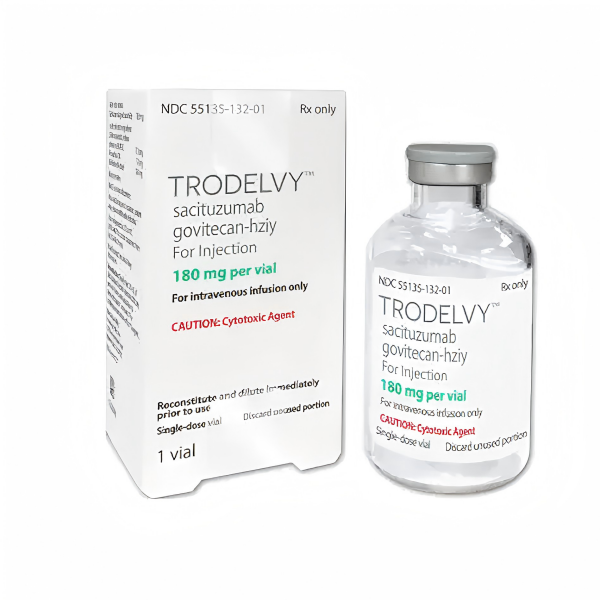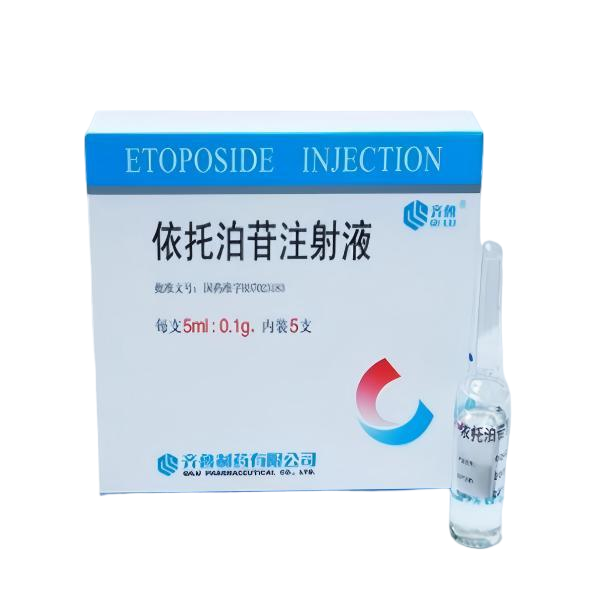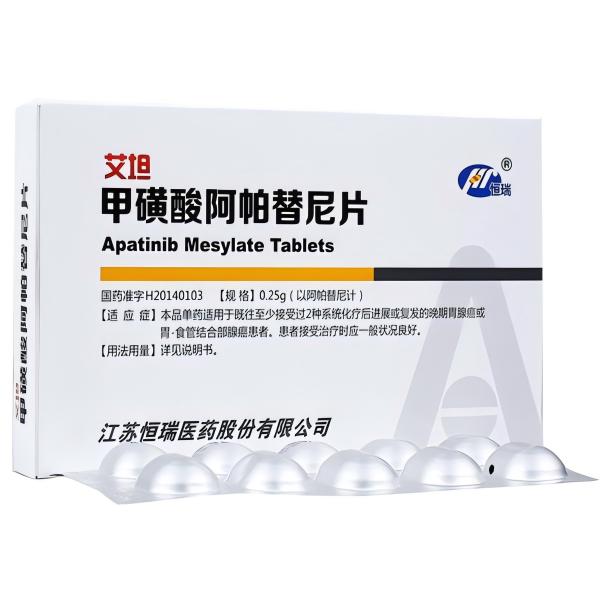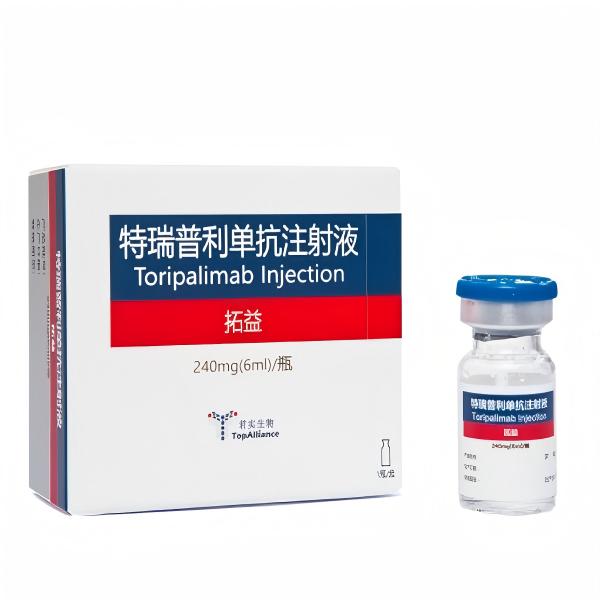

Toripalimab Injection
Shanghai Junshi Biosciences Co., Ltd.
Quick Info
Melanoma, hepatocellular carcinoma, triple-negative breast cancer, nasopharyngeal carcinoma, urothelial carcinoma/bladder cancer, non-small cell lung cancer, small cell lung cancer, esophageal squamous carcinoma, non-squamous non-small cell lung cancer, renal cell carcinoma.
This product is suitable for the treatment of unresectable or metastatic melanoma that has previously failed systemic therapy. * This product is suitable for the treatment of locally advanced or metastatic urothelial carcinoma that has progressed within 12 months of failing platinum-based chemotherapy, including neoadjuvant or adjuvant chemotherapy. * The above indications have been conditionally approved in China based on the objective response rates from single-arm clinical trials. Full approval of this indication will depend on whether ongoing confirmatory clinical trials can demonstrate long-term clinical benefits for patients in China. This product is applicable for the treatment of recurrent/metastatic nasopharyngeal carcinoma patients who have previously failed second-line or higher systemic therapy. This product in combination with cisplatin and gemcitabine is used for first-line treatment in patients with locally recurrent or metastatic nasopharyngeal carcinoma. This product in combination with paclitaxel and cisplatin is suitable for first-line treatment of unresectable locally advanced/recurrent or metastatic esophageal squamous cell carcinoma. This product in combination with pemetrexed and platinum-based therapy is applicable for first-line treatment of unresectable locally advanced or metastatic non-squamous non-small cell lung cancer (NSCLC) that is negative for epidermal growth factor receptor (EGFR) gene mutations and anaplastic lymphoma kinase (ALK). This product combined with chemotherapy in the perioperative setting, followed by monotherapy as adjuvant treatment, is used for adults with resectable stage IIIA-IIIB non-small cell lung cancer (NSCLC).
240 mg (6ml) /vial
80 mg (2ml) / vial
This product must be used under the guidance of a physician experienced in tumor treatment. Recommended dosage: For unresectable or metastatic melanoma that has failed systemic therapy in the past, and for locally advanced or metastatic urothelial carcinoma with platinum-based chemotherapy failure within 12 months of neoadjuvant or adjuvant chemotherapy, or for recurrent/metastatic nasopharyngeal carcinoma that has failed second-line or higher systemic treatment (monotherapy): the recommended dosage is 3 mg/kg, administered via intravenous infusion every 2 weeks, until disease progression or intolerable toxicity occurs. For first-line local recurrence or metastatic nasopharyngeal carcinoma, unresectable locally advanced/recurrent or metastatic esophageal squamous cell carcinoma first-line treatment, and first-line treatment for unresectable locally advanced or metastatic non-squamous non-small cell lung cancer with negative EGFR gene mutation and negative anaplastic lymphoma kinase (ALK): the recommended dosage is a fixed dose of 240 mg, administered via intravenous infusion every 3 weeks, until disease progression or intolerable toxicity occurs. For resectable stage IIIA-IIIB non-small cell lung cancer perioperative treatment: the recommended dosage is a fixed dose of 240 mg, administered via intravenous infusion every 3 weeks, combined with chemotherapy during 3 cycles of neoadjuvant treatment, 1 cycle of adjuvant treatment, then continue with single-agent adjuvant treatment of this product at a fixed dose of 240 mg, intravenous infusion every 3 weeks for a total of 13 cycles or until disease recurrence or intolerable toxicity occurs. When up to 4 cycles of perioperative combined chemotherapy are met, the medication cycle and timing of surgery for perioperative combined chemotherapy can be adjusted according to actual clinical circumstances. When administering Treprilizumab in combination with chemotherapy, Treprilizumab should be administered first. Please also refer to the prescription information for chemotherapy drug administration. Atypical responses have been observed in tumors treated with this product (for instance, temporary enlargement of the tumor or new small lesions may appear in the initial months of treatment, followed by tumor shrinkage). If the patient’s clinical symptoms are stable or continuously improving, even with initial evidence of disease progression, it may be considered to continue treatment with this product based on overall clinical benefit, until disease progression is confirmed.
This manual describes the approximate incidence of adverse reactions judged to be possibly related to Treplizumab observed in clinical trials. Since clinical trials are conducted in different patient populations and under various conditions, the incidence of adverse reactions observed in different clinical trials cannot be directly compared and may not reflect the actual incidence in clinical practice.
Medicine

Sacituzumab Govitecan for Injection
Triple negative breast cancer, HR positive, HER2 negative breast cancer

Etoposide Injection
Mainly used to treat small cell lung cancer, malignant lymphoma, malignant germ cell tumor, leukemia, neuroblastoma, rhabdomyosarcoma, ovarian cancer, non-small...
1-1.png)
Sintilimab Injection
Classical Hodgkin's lymphoma, Non-squamous non-small cell lung cancer, Squamous non-small cell lung cancer, Hepatocellular carcinoma, Esophageal squamous cell carcinoma, Gastric...

Apatinib Mesylate Tablets
This product is suitable for patients with advanced gastric adenocarcinoma or gastroesophageal junction adenocarcinoma who have progressed or relapsed after...
Related News

China’s Innovative Drugs Go Global: From Followers to Game Changers

China’s innovative drugs gain momentum in global expansion efforts

Virtual mental health care visits: Making them work for youChinese-made new drugs big hit overseasVirtual mental health care visits: Making them work for you

Accelerating Chinese Innovative Drugs Going Global: International New Drug R&D Regulation Forum Successfully Held



